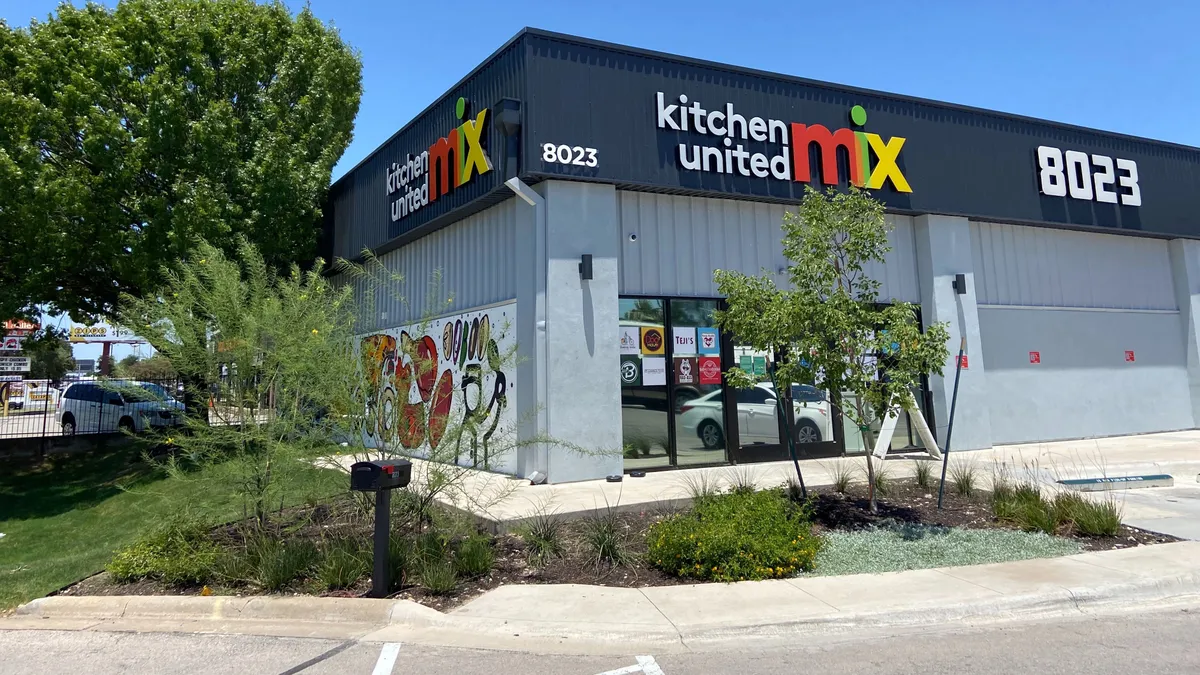Dive Brief:
- Kitchen United will bring U.K.-based restaurant Camile Thai to the U.S. market, licensing the tech-savvy Asian brand exclusively at Kitchen United MIX locations, according to a press release. The first Camile Thai is open in Kitchen United's new Chicago Loop Kitchen Center, with further expansion planned in Chicago, Pasadena, California, and Austin, Texas, throughout this year.
- Camile Thai first opened in 2010 and now includes 40 locations throughout the United Kingdom and Ireland.
- Expanding via ghost kitchens could provide international brands an entry point into the U.S. that requires less capital than traditional brick-and-mortar locations, lowering financial risk. Some international restaurant concepts, such as Leon and Le Pain Quotidien, for example, have struggled after joining the American market.
Dive Insight:
Camile Thai isn't the only international concept using ghost kitchens to facilitate an American debut, either. Lola's Latin Food, a Canadian supplier of frozen Venezuelan foods, recently announced it is expanding into the U.S. via Ghost Kitchen Brands, which operates "virtual food courts" inside retailers like Walmart.
Ghost kitchen facilities offer a strong value proposition for restaurants looking to grow their footprint with minimal investment. US Foods estimates that leasing a fully-equipped facility like Kitchen United costs about $50,000, versus the $750,000 to $1.2 million it takes to open a small restaurant in an urban market.
"The rise of the on-demand economy has driven a monumental shift in traditional brick-and-mortar restaurant service," Camile Thai CEO Brody Sweeney said in a statement. "Last year saw the most significant adoption of technology in our industry's history with volume digital food ordering and delivery at its core."
Camile Thai is already delivery-savvy, but this partnership could deepen its off-premise prowess. The restaurant was an early adopter of hot food at-home delivery, according to the press release, and facilitates hot food drone delivery in Europe in partnership with drone delivery startup Manna.
Leveraging a flexible ghost kitchen model to offer a diversified portfolio of brands could be an effective way for Kitchen United to compete with rivals as demand for delivery-only experiences grows. The space is becoming crowded — JustKitchen, a ghost kitchen company headquartered in Canada, plans to expand in the U.S. this year, for example.
In a statement, Kitchen United Chief Business Officer Atul Sood said the ghost kitchen company is constantly evaluating new ways to support its restaurant partners, such as offering this licensing opportunity.
"While a lot of new trends and short-lived concepts have emerged in the last year amid the rise in popularity of ghost kitchens, Camile Thai offers long-term opportunity and value for operators looking to grow via a licensed model," he said.











